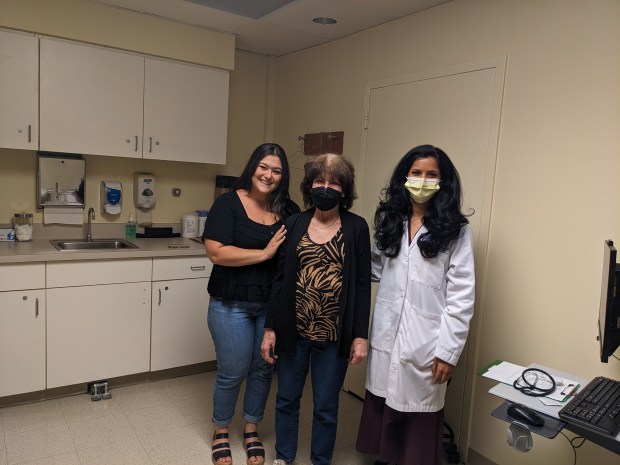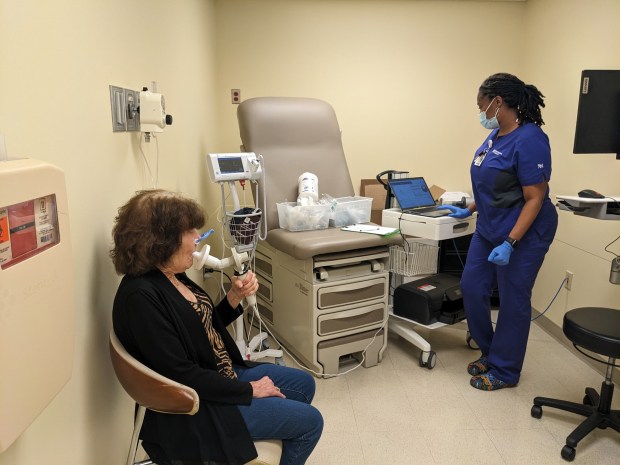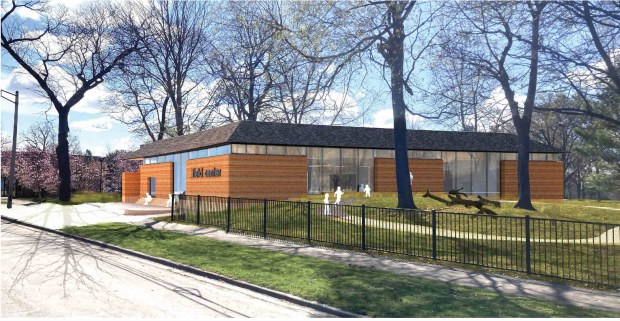A double lung transplant has given Michelle Knight, of Oak Forest, a new lease on life when she might have given up.
Even with the sometimes grueling recovery period, which included being on a ventilator right after surgery, intense rehabilitation and taking 25 pills daily to ward off rejection and infection, Knight, 64, is upbeat about the entire experience.
“I’m grateful, I’m blessed, ” Knight said as she sat in a clinic room at Northwestern Medicine Palos Hospital waiting to see her lung transplant pulmonologist. “I don’t think it was a problem at all, I feel good.”
Part of that outlook comes from having a firm grasp of the big picture.
“I was able to get two new lungs,” Knight said.
Dr. Mrinalini Venkata Subramani, her pulmonologist, said she was doing great. She had end-stage COPD and was on oxygen, plus during her transplant three months ago, lung cancer was found. She also had major abdominal surgery last year, followed by weeks of rehabilitation.
“I knew Michelle prior to the transplant,” Subramani said. “I’ve seen the change she’s undergone from being very, very sick … to now being independent.
“Her breath is completely normal and she’s able to do everything she wants to do.”
The Lung Transplant Clinic at Palos, which opened in January, has been a big help. She and her family and caregivers had been going downtown to Northwestern for appointments and testing. The trips to and from Chicago just added to the exhaustion she felt in an already weakened state.
Subramani said when Francesca Agostinelli, Knight’s 25-year-old daughter and primary caregiver, was told about the clinic opening, she was almost in tears, “she was so relieved she didn’t have to drive (her mother) downtown to appointments.”
“For patients who live in this area, that can be hours,” said Anne O’Boye, manager of the Northwestern Medicine Canning Thoracic Institute Lung Transplant Program. “It’s making a big impact on patients.”
Subramani said it typically took patients four to 12 weeks after surgery to fully recover, depending on their strength going into the transplant and recovery immediately after.
Northwestern performed the first double-lung transplant in 2020 and its Double Lung Replacement and Multidisciplinary Care program has now performed double-lung transplants on 40 patients, including Knight, at the Northwestern Medicine Canning Thoracic Institute in Chicago.
“Our double lung transplant program is a life-saving program for end-stage lung disease and the lung disease could be from various causes,” Subramani explained.
Knight’s family has helped her through the many visits, pain and recovery, which was evident to the health care staff who helped her.
“The family was an enormous support,” Subramani said.
Knight’s daughter said she and her sisters had rallied around their mom to help. But Agostinelli has been on-call for her mom the most because they live together, while her three sisters reside out of state.

Though Knight needs to be seen only once a month at this point, after the transplant it was three to four times weekly for testing and appointments.
“It is a lot of work,” said Agostinelli. “They trained us on how to give medications, what to look for (in terms of infection or rejection).
“They’re like a family. The Northwestern team has been so incredibly helpful about explaining everything.”
Knight, too, praised the doctors, nurses and other health care workers, who continue to help her.
“The staff has all been very kind,” she said.
Janice Neumann is a freelance reporter for the Daily Southtown.





